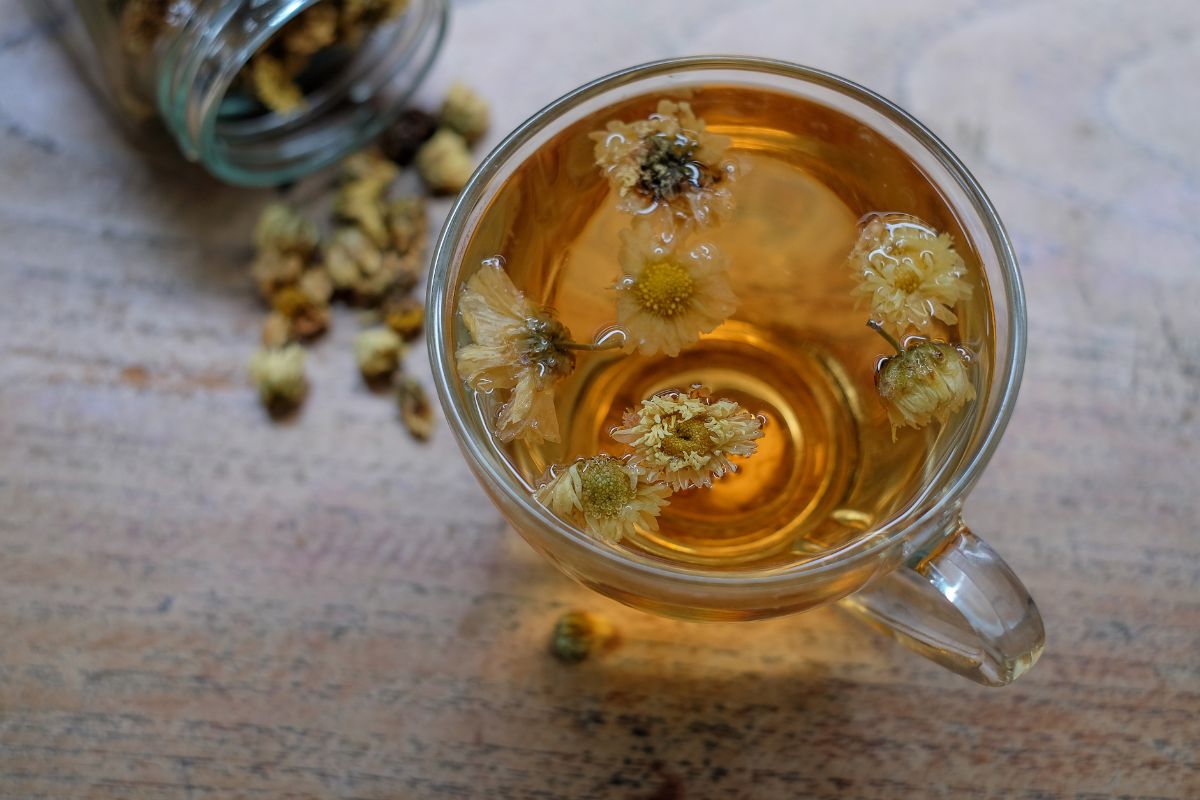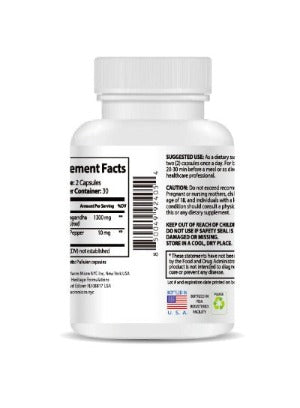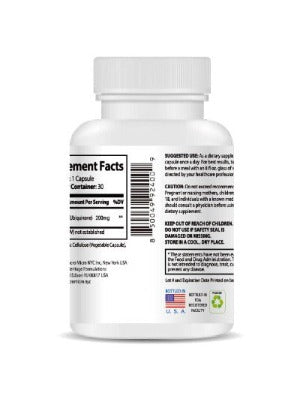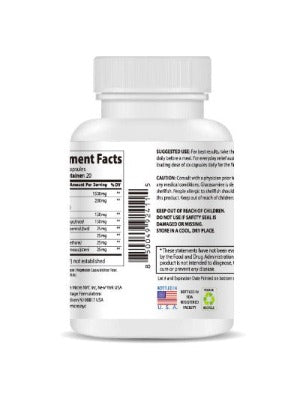Hey everyone! Let's talk about something that's becoming increasingly common in our digital age: dry eyes. You know that gritty, itchy, sometimes even painful feeling? Yeah, that. And often, the first piece of advice we get is to simply drink more water. While staying hydrated is absolutely crucial for overall health, when it comes to dry eyes, the solution might be a little more nuanced, especially when we look at it through the lens of Traditional Chinese Medicine (TCM).
The Water Myth: Why More Isn't Always More
It's true, water is essential. It keeps our bodies functioning, our skin plump, and yes, our eyes lubricated. However, TCM offers a different perspective. In TCM, the body is seen as a delicate ecosystem where energy (Qi) and vital substances like Blood and Yin flow. Dryness in TCM isn't just about a lack of fluid; it's often a sign of an underlying imbalance, typically related to insufficient Yin or Blood, or an excess of Heat that's consuming these vital fluids. Think of it like this: if you have a leaky bucket, just pouring more water into it won't solve the problem. You need to fix the leak! Similarly, if your body's Yin or Blood is deficient, drinking more water might not effectively reach and nourish your eyes. The water might be processed and used elsewhere, leaving your eyes still feeling parched.
The Unseen Causes of Dry Eyes: A TCM Exploration
In TCM, the health of the eyes is intimately connected to the internal organs, particularly the liver and kidneys. This isn't just a metaphorical link; it's a functional one based on centuries of observation and practice.
- The Liver's Role: The liver in TCM governs the free flow of Qi and Blood throughout the body. It also "opens into" the eyes, meaning its health directly impacts vision and eye moisture. When liver Qi becomes stagnant (often due to stress, frustration, or irregular lifestyle), it can impair the Blood supply to the eyes, leading to dryness, redness, and fatigue. Furthermore, an overactive liver, often associated with Heat, can "dry up" the bodily fluids, including those that lubricate the eyes.
- Kidney Yin Deficiency: The kidneys are the foundation of Yin in the body. Yin represents coolness, moisture, and nourishment. When Kidney Yin becomes deficient (due to overwork, chronic illness, or aging), it can lead to a "empty heat" condition, where the body's cooling mechanisms are weakened. This internal heat can then consume the precious fluids needed for eye lubrication, resulting in chronic dry eyes, especially noticeable in the afternoon or evening.
- Spleen Qi Deficiency: While not as directly linked as the liver and kidneys, the spleen plays a crucial role in transforming food into usable Qi and Blood. If spleen Qi is weak, the body may not be able to generate enough Blood and fluids to adequately nourish the eyes, contributing to a feeling of dryness and discomfort.
Therefore, the sensation of dry eyes can be a signal from your body that there's an imbalance within these vital organ systems, not just a simple need for more water.
Beyond Hydration: Targeted Relief for Screen-Weary Eyes
We live in an era where screens are ubiquitous. From work and education to entertainment and social connection, our eyes are constantly exposed to artificial light and prolonged focus. This digital lifestyle puts immense strain on our eyes, often exacerbating underlying imbalances that lead to dry eye symptoms. While drinking water is a fundamental aspect of self-care, it often falls short when the issue stems from a more complex internal pattern. This is where targeted, natural solutions come into play. For those of us spending hours in front of computers, laptops, or smartphones, finding effective relief is paramount. The [Wise Quest Soothing Eye Patches - 3-Month Wellness Pack](https://www.example.com/products/quest-wise-soothing-eye-patches-3-month-wellness-pack?utm_source=jolt_app&utm_medium=blog) is designed precisely for this purpose.

These patches are more than just a temporary fix; they represent an investment in your long-term eye health. Crafted with nature’s finest, non-toxic ingredients and made in Japan, they aim to provide relief from chronic dryness and strain. The 3-month wellness pack ensures you have a consistent supply of this soothing remedy. The gentle application of these patches allows natural ingredients to directly nourish the delicate skin around your eyes, offering comfort and support without harsh chemicals. This external application complements internal TCM principles by directly addressing the symptoms while encouraging a balanced internal state.
Holistic Approaches Rooted in TCM Wisdom
To truly combat dry eyes from a TCM perspective, we need to look beyond a single solution. Integrating various practices can bring about profound relief and lasting well-being.
Dietary Adjustments for Eye Nourishment
Your diet is a powerful tool in TCM. To address dryness, focus on incorporating foods that nourish Yin and Blood, and cool down any internal Heat:
- Yin and Blood Tonics: Include foods like black sesame seeds, goji berries (wolfberries), mulberries, longan fruit, and eggs.
- Moistening Foods: Incorporate plenty of hydrating vegetables and fruits such as cucumbers, pears, watermelons, and lotus root.
- Cooling Foods: Opt for ingredients like mung beans, barley, and leafy greens which help to clear internal Heat.
- Foods to Limit: Reduce your intake of spicy foods, deep-fried items, alcohol, coffee, and excessive amounts of dry, roasted foods, as these can generate Heat and further deplete fluids.
Lifestyle Practices for Eye Health
Modern life often disrupts the balance that TCM emphasizes. Simple lifestyle adjustments can make a world of difference:
- Mindful Screen Use: The 20-20-20 rule is a lifesaver. Every 20 minutes, take a 20-second break to look at something 20 feet away. This reduces eye strain and allows your eyes to refocus.
- Adequate Sleep: TCM emphasizes the importance of sleep for restoring the body's Yin and Blood. Aim for 7-9 hours of quality sleep each night, ideally going to bed before 11 PM when the liver meridian is most active for repair.
- Stress Management: Chronic stress directly impacts liver Qi. Practices like meditation, gentle yoga, deep breathing exercises, and spending time in nature can help to calm the liver and promote smooth Qi flow.
- Environmental Factors: Avoid prolonged exposure to wind, smoke, and dry air. Use a humidifier if your living or working environment is very dry.
Herbal Support and External Therapies
TCM often employs sophisticated herbal formulas tailored to individual imbalances. While professional consultation is recommended, some commonly used herbs for eye health include chrysanthemum flowers (to clear liver heat and brighten the eyes), goji berries (to nourish liver and kidney Yin), and cassia seeds (to moisten the intestines and clear heat). For direct comfort, as mentioned earlier, options like the [Wise Quest Soothing Eye Patches - 3-Month Wellness Pack](https://www.example.com/products/quest-wise-soothing-eye-patches-3-month-wellness-pack?utm_content=blog_product_link) provide a convenient way to deliver nourishing elements to the eye area, complementing internal wellness efforts.
The Takeaway: A Balanced Approach for Happy Eyes
In conclusion, while drinking more water is a fundamental health practice, it's often an incomplete solution for the complex issue of dry eyes. Traditional Chinese Medicine offers a profound understanding of how internal imbalances, particularly related to the liver and kidneys, contribute to this common ailment. By looking beyond simple hydration and embracing a holistic approach—incorporating TCM-aligned dietary habits, mindful lifestyle practices, and targeted remedies like the [Wise Quest Soothing Eye Patches - 3-Month Wellness Pack](https://www.example.com/products/quest-wise-soothing-eye-patches-3-month-wellness-pack?utm_content=blog_product_link)—you can effectively address the root causes of your dry eyes and achieve lasting comfort and clarity. Here's to healthier, happier eyes in 2025!













